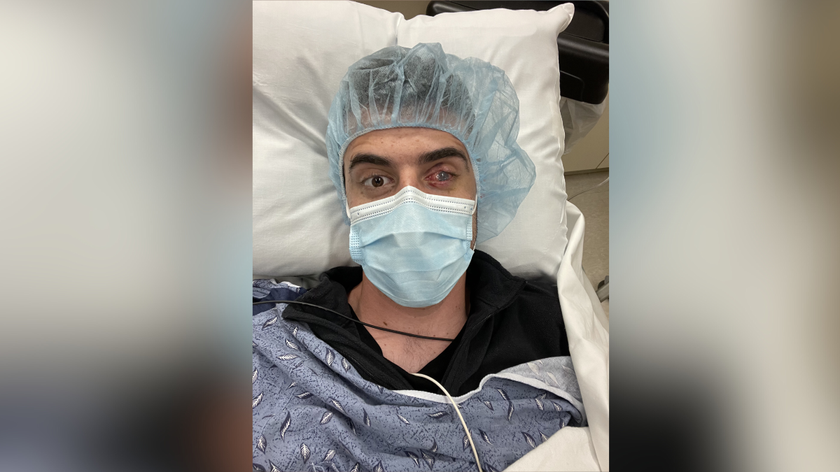Obese Employees Take More Sick Leave

Obese people take more time off work for illness than their slimmer counterparts, a new study suggests, adding perhaps more incentive for employers to combat expanding waistlines in the workplace.
The results show obese individuals took four more sick days per year on average than those of a healthy weight.
Obesity is known to increase the risk of many chronic diseases, including cardiovascular disease and type 2 diabetes. So it is perhaps not surprising that obese individuals would require more sick leave, especially in the form of long-term absences. However, the study also found obesity increased the risk for short-term absences — the time someone might take off if he or she had the flu.
The work suggests the current obesity epidemic in the United States and other developed countries may have economic costs beyond just rising medical bills. The researchers hope the findings may spur employers to take action to encourage their employees to lose weight.
"Employers are in quite a unique position to contribute to the public health message and interventions around obesity and trying to reduce levels of obesity," said study researcher Samuel Harvey, a psychiatrist at King's College London. "Our hope is that by demonstrating the economic cost to them of obesity amongst their workforce that that will help motivate employers to get involved in thinking about this problem."
However, since the study was carried out on a specific group of workers in the United Kingdom, the results might not necessarily apply to other populations.
Absent from work
Sign up for the Live Science daily newsletter now
Get the world’s most fascinating discoveries delivered straight to your inbox.
Some previous studies have found a link between obesity and sick days, but scientists hadn't distinguished between long- and short-term absences. Also, most previous studies were based on a person's own report of their weight, which might be inaccurate.
Harvey and his colleagues analyzed data from 625 workers for the London Underground, a public transportation system in the city. The workers either drove or controlled trains, and were required to undergo regular health checkups.
The subjects had their height and weight measured between 2004 and 2005, and they were followed up for a period of two years. Individuals were considered obese if they had a body mass index (BMI) of 30 or over. BMI is a ratio of a person's height and weight, and considered an indicator of body fatness.
Obese workers took an average of nine days off work per year while healthy weight individuals took off an average of five.
Obesity increased the risk for both long-term (more than 10 days) and short-term absences.
The researchers then took into account other factors that might influence absenteeism, including whether they had psychiatric problems, obesity-related medical problems (such as several chronic diseases), or whether they were dissatisfied with their job or manager.
For the most part, long-term absences among obese individuals appeared to be due to medical problems. However, the link between obesity and short-term absences held regardless of medical problems, psychiatric disorders and job satisfaction.
Why is there a link?
While the researchers don't know for sure why obese people have a higher risk for short-term absences, they have some speculations. It might be that obese people are more susceptible to infections and take longer to recover from them, Harvey told LiveScience.
Alternatively, "obese individuals might cope with symptoms of ill health in different ways to those of healthy weight, causing them to have a lower threshold for taking time off," Harvey said. For now, the question remains unanswered, he said.
The results are published in the August issue of the journal Occupational Medicine.
- 8 Reasons Our Waistlines Are Expanding
- 7 Diet Tricks That Really Work
- 7 Biggest Diet Myths

Rachael is a Live Science contributor, and was a former channel editor and senior writer for Live Science between 2010 and 2022. She has a master's degree in journalism from New York University's Science, Health and Environmental Reporting Program. She also holds a B.S. in molecular biology and an M.S. in biology from the University of California, San Diego. Her work has appeared in Scienceline, The Washington Post and Scientific American.









